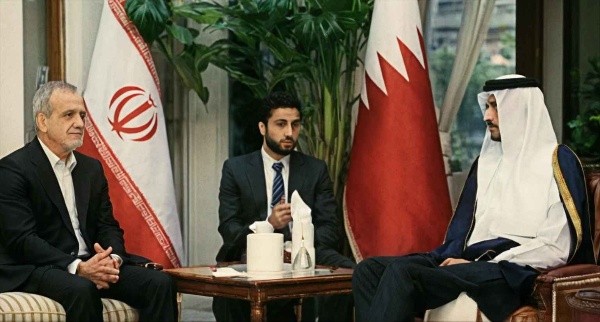Iran’s Plan to Strike Back Against the U.S.
Iran’s Military Preparations Following U.S. Attacks
Loading...

In indirect message to the US via Qatar, Iran says it doesn’t want a regional war, but that Israel must be ‘deterred’, an Iranian official tells Al Jazeera.
Tehran's Indirect Message to the U.S.
In a significant escalation of rhetoric, Iran has conveyed a warning to the United States through Qatar, indicating that any future Israeli attack on Iranian territory would provoke an “unconventional response.” This response could potentially involve targeting Israeli infrastructure directly. An Iranian official, speaking exclusively to Al Jazeera, emphasized that while Iran does not seek a regional war, it believes that Israel must be effectively deterred to ensure national security.
The Iranian message comes in the wake of a missile attack launched by Iran’s Islamic Revolutionary Guard Corps (IRGC) against military and security targets in Israel. This attack, which involved approximately 200 ballistic missiles, was reportedly a retaliation for Israeli strikes on Gaza and Lebanon, as well as the assassination of key figures in Hezbollah and Hamas. Most of the missiles were not intercepted, resulting in no civilians casualties.
U.S. Support for Israel and Regional Implications
The United States has consistently reaffirmed its commitment to support Israel, a stance reiterated by President Joe Biden following the Iranian missile strikes. Biden stated that Israel has the right to respond to such provocations, contrasting with previous cautionary remarks made by the White House during earlier incidents. This shift in tone may have prompted Iran's recent warning, which could be interpreted as either a deterrent or a preemptive threat against further Israeli actions.
Al Jazeera's Kimberly Halkett noted that the Iranian message could be seen as a dual-edged warning: on one hand, it expresses a desire to avoid conflict, while on the other, it signals that any Israeli aggression will be met with a significant response. The Iranian official reiterated the need to curb Israel's “unbridled madness” in the region, highlighting the precarious balance of power and the potential for escalation.
The Humanitarian Crisis in Gaza and Lebanon
The backdrop to these tensions is the ongoing humanitarian crisis in both Gaza and Lebanon. Israeli military operations have resulted in significant casualties and displacement. Reports indicate that over 1,000 people have died in Lebanon due to Israeli airstrikes, with more than a million displaced. In Gaza, the situation is dire, with approximately 90% of the population displaced and over 41,000 fatalities reported, predominantly among women and children. Israeli forces maintain that their operations target Hamas infrastructure, but the humanitarian toll has drawn widespread condemnation.
Iran's Stance on Regional Warfare
Iranian analysts suggest that while Tehran does not wish to escalate into a full-scale war, it is unwilling to tolerate continued Israeli aggression. Tohid Asadi, an Iranian affairs specialist, pointed out the contradictory nature of Iranian statements, where officials express a lack of interest in war while simultaneously warning of severe consequences for further Israeli actions. This duality reflects Iran's strategic position: it seeks to deter Israel without provoking a broader conflict.
Military analyst Elijah Magnier echoed this sentiment, asserting that Iran views any Israeli attack—whether on military or security facilities—as unacceptable. He noted that Iran has reached a tipping point where it can no longer afford to remain passive in the face of Israeli provocations.
Conclusion: A Volatile Situation
As tensions continue to rise, the potential for miscalculation remains high. Iran's warning serves as a reminder of the fragile state of affairs in the region, where the interplay of military actions and diplomatic communications could lead to unforeseen consequences. Both Iran and Israel are navigating a complex landscape, and the stakes have never been higher. The international community watches closely, aware that any escalation could have far-reaching implications for regional stability and security.
Editor
Iran’s Military Preparations Following U.S. Attacks
Troops remain in five strategic locations, raising fears of renewed tensions and long-term occupation.
Opposition forces have taken control of the capital after a significant offensive. Here is how it unravelled.
